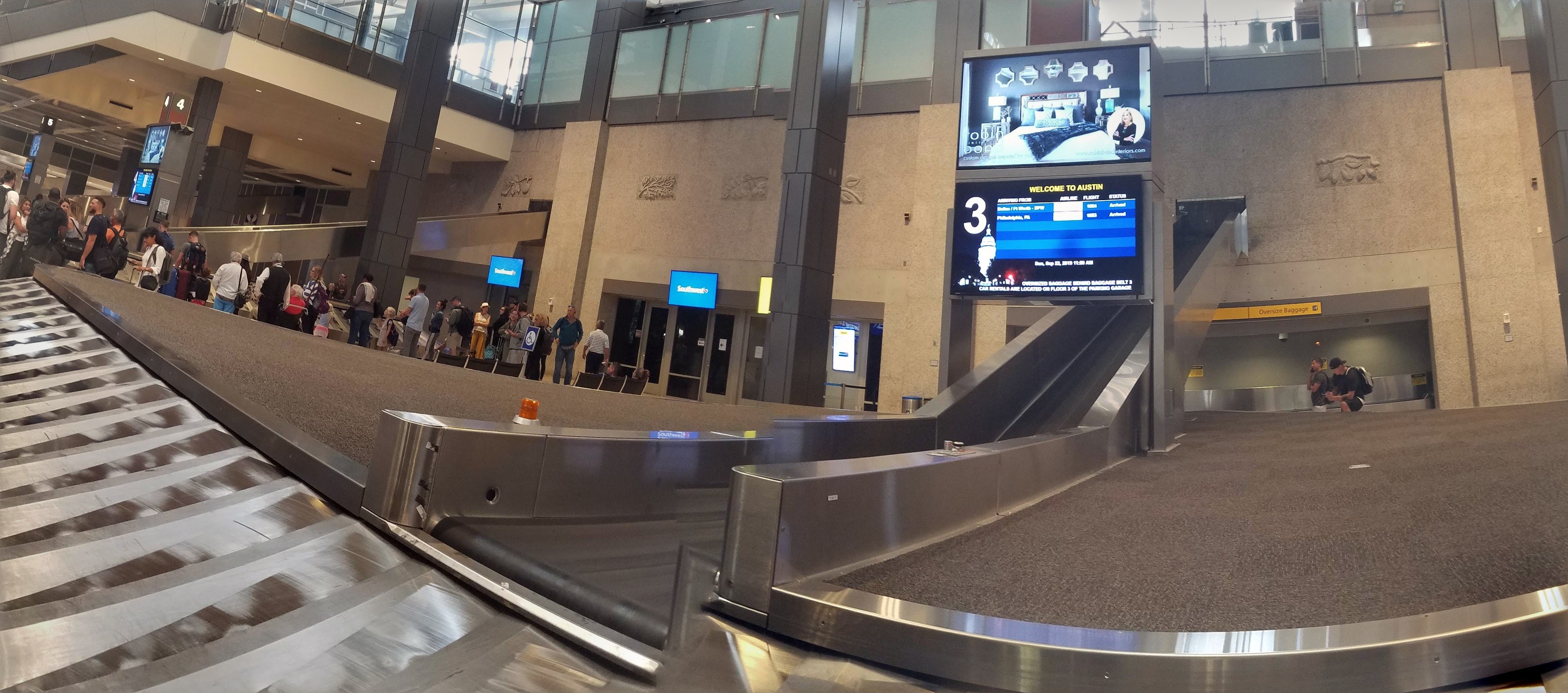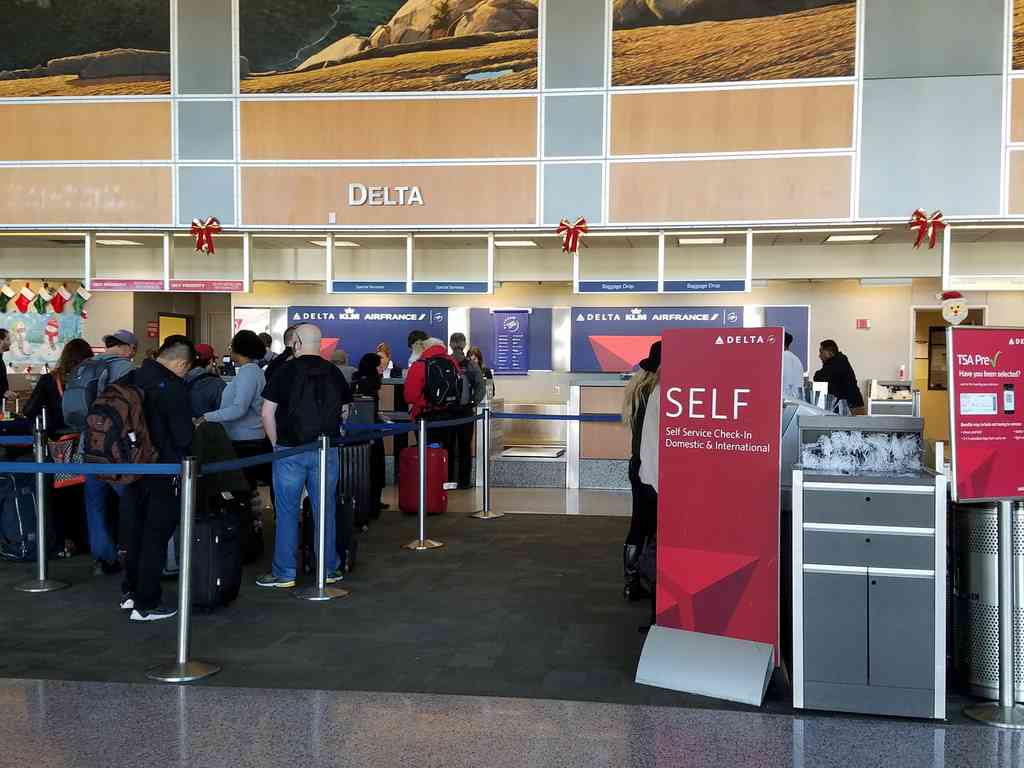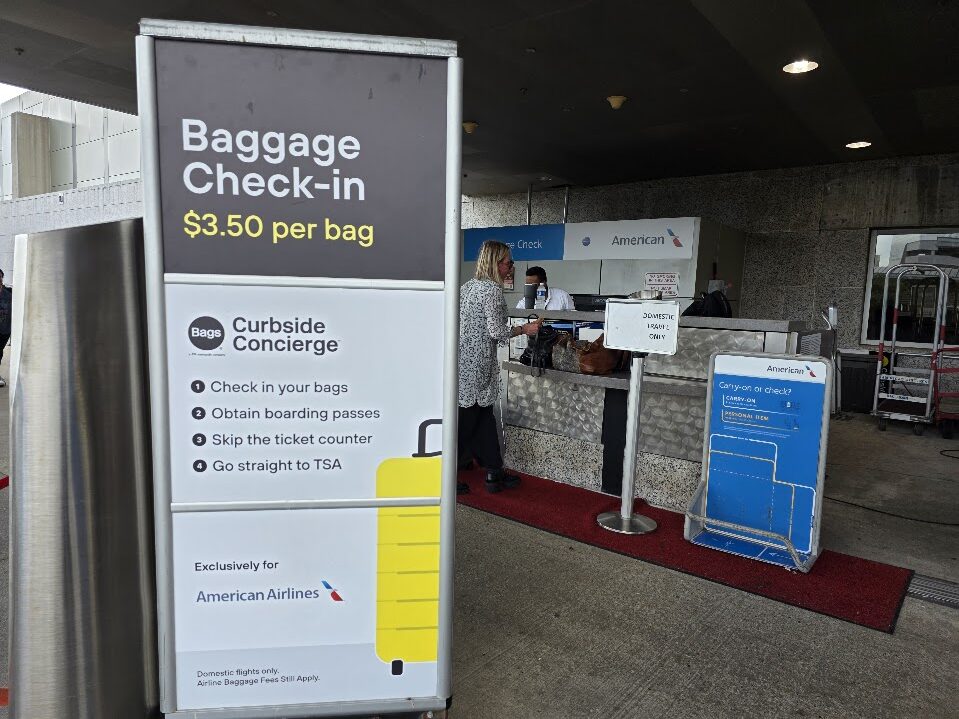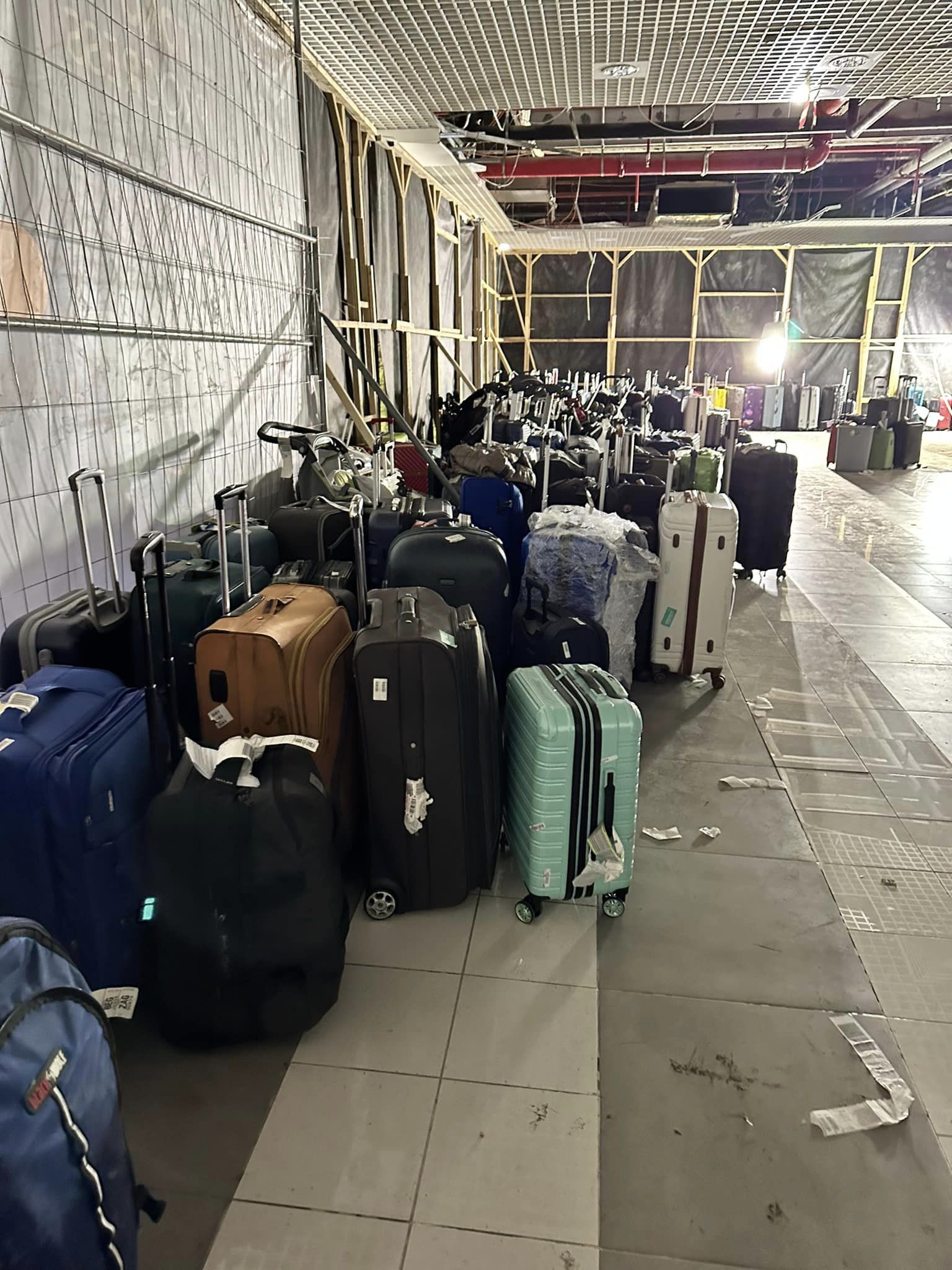Fox News reports on a type of fraud where people steal baggage tags off of luggage at baggage claim, and report those bags missing for compensation from the airline.
- You don’t lose out on anything, since you’ve gotten your bags back
- The fraudster gets paid for the missing bag.

The source for this is the claim from a self-identified Delta Air Lines baggage services manager that was shared to social media,
I am a Delta baggage claims manager and I just wanted to let everyone know to please start discarding your bag tags at home. We are getting an influx of fraudulent claims being submitted for “missing items” as these people are observing who is removing their luggage tags in the claim areas and using your information to submit claims for reimbursement.
From my own personal experience in currently dealing with this it is causing issue with reimbursing the real people if they submit a legitimate claim. So please be careful and don’t take your tags off at the airport. They can steal enough information from that to use your travel itinerary to get paid.

A best practice anyway is to keep the bag tag attached to your luggage until any baggage issues are fully resolved, then discard it at home.
- itemize any pricey items you pack, with receipts if possible and with photos
- better yet, don’t check expensive items!

That said, and the Fox piece cites me on this point, the scam doesn’t strike me as plausibly common and high volume.
- The tag is going to have limited information (like last name, flight number and bag tag number but not ticket number, address etc). To file a claim you first have to get a baggage service file reference and submit contact details.
- Bags are scanned. Each scan from check‑in to baggage belt is logged. If a scammer files a missing bag claim where the system shows it was delivered that’s going to be a flag when this happens at scale. (Delta in particular also RFID tags bags.)
- No airline, the DOT, TSA, or industry group has issued a warning about baggage tag theft or has asked passengers to avoid tag removal until leaving the airport. No prosecutions I’ve been able to find mention this technique.

People do run baggage scams. The most common is filing lost bag claims for items that were actually delivered, which I’ve written about a couple of times, for instance checking a bag and claiming up to $3,500 in valuables were lost from each one.
They’d use fake names to avoid creating an obvious pattern. Airlines know that your bag was delivered, but not that all of its contents were. Scammers were caught after running up $550,000 in compensation, it seems, after providing the same address on missing item claims.


That’s upsetting. Baggage claim areas at airports really should be ‘secured’ spaces, which would limit non-ticketed-passengers from accessing those areas. Also, a quick verification upon exit (show us your boarding pass and make sure it matches the bag tag by the airline, etc.) would do a world of good. Separately, but related, hidden Airtags (or equivalents) in checked bags are wise for many reasons (track if lost, stolen).
If only these thieves were to focus their efforts and ingenuity on performing something that employers can pay for …..
@Disgruntled American — Well, employers (and entrepreneurs) really should get on that, too. You know when crime tends to go down? When there’s low unemployment. You know when unemployment goes down? Often when folks are paid a living wage. Or… ignore all that ‘socialist’ nonsense, blame the poor, vilify the needy, and worship capital, at all costs. (Burn the safety nets!)
Office workers would understand if locked shredder bins were placed in baggage carousel areas for old tags.
Theft and greed never seem to go out of style!
@BigTee — Well then, find the pitfalls, correct for them. You already seem to know what to do. Time to charge a ‘consulting’ fee, and implement this plan across airports.. nationwide!
It’s a bit tragic that we don’t have more of a market for third-party “door to door” baggage shipping and delivery services, so people could avoid schlepping their bags through the airport in the first place.
Don’t the baggage people ask for ID when a claim is filed? The “passenger” needed one to clear security when they began their trip. Just showing the bag tag should NOT be enough.
Why not just add some walls and one-way exit doors, so the baggage claim can’t be accessed from the public area? Many airports in the UK do this even for domestic arrivals.
Also, doing so has security benefits in other ways – the tradition of freely accessible baggage claim areas predates the requirements for security screening of checked baggage.
Of course, the problem is that altering existing terminals to accommodate such a layout would range anywhere from extremely difficult to basically impossible.
For an elite travel experience to or from Georgia, consider Delta.
@Matt — Glorious! Our champion has returned! Wait until @L737 sees this. So glad you’re still around, sir. Keep climbing! 100 more years!
The most amazing thing is that US airlines would do hefty pay-outs on unsubstantiated claims.
Secondly, the average bagtag is hellishly difficult to remove, as it should be, and anyone trying to do so at the arrival airport would attract the attention of any security person doing their job.
The personal bag tags are usually easy to remove. Many airline supplied ones are easily damaged during checked luggage handling. I keep using the EVA Air ones because they are not damaged so easily, but my supply is running down since Covid-19.
The airline routing tags are also easily removed. Since they are made of material that doesn’t easily tear, the way to get them off is to separate them on the adhesive strip starting where they come together around a handle. Get a finger in the gap and then two, applying constant pressure to separate the airline routing tag strips. It is easier if it is warmer. You usually only have to separate the strips a short distance since one of the strips can be removed from it’s slippery backing and the backing tears easily.
Seems there’s an easy solution. The bag tag should not contain sufficient information to file a claim. In filing the claim, the claimant would need to provide some piece of data not on the bag tag and not internet searchable from info contained.
I guess I’m not real bright and would make a lousy criminal.
If the claim is matched to a flight ticket, the name, address, and email address of the passenger are known to the airline. If an airline submits a baggage claim payment, it should go to the passenger on file.
How does the thief receive the compensation??
In addition to your observations that the tag doesn’t have enough information AND that no official warnings from airlines or TSA have even released….the language of the “post” from the alleged delta airlines employee also raises a red flag for me. How would the baggage claim manager know that “real” claims are being denied due to the influx of fake ones? Those clowns aren’t filed with an individual airport staff; they go through a corporate customer service line.
The whole post feels fishy to me.